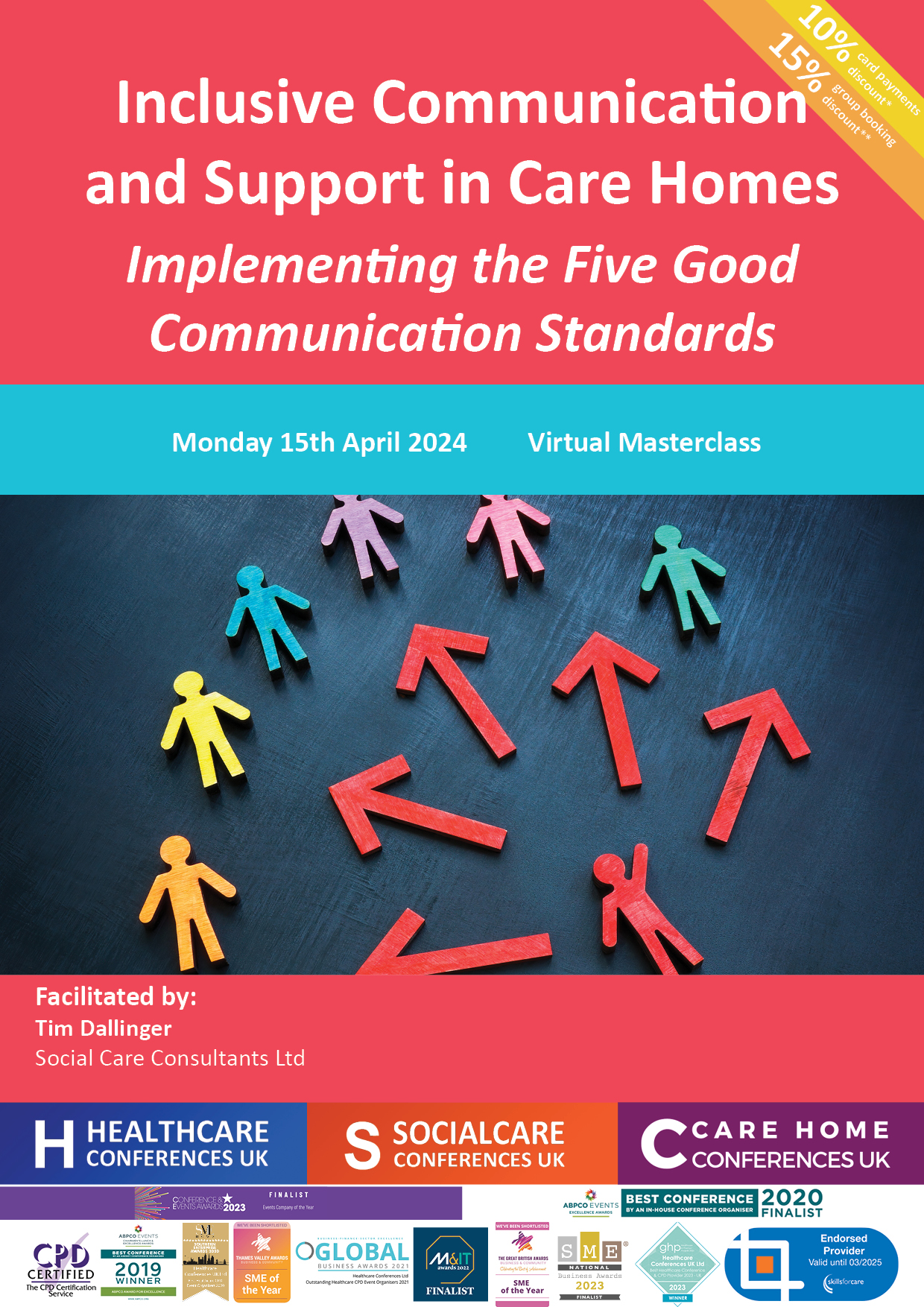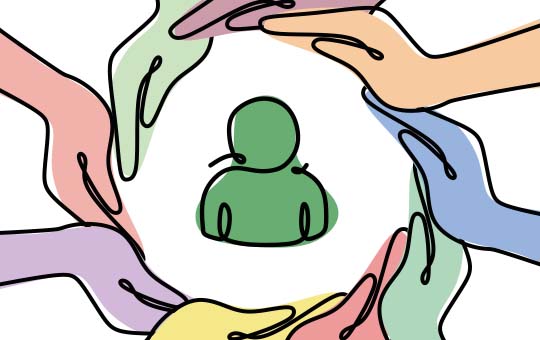Inclusive communication is an approach to communication which enables as many people as possible to be included in that interaction.
This masterclass will focus on how good communication underpins outcomes and how implementing good communication in care plans is proactive and prevents reactive and unethical restrictive interventions.
Inclusive communications is relevant to everyone and to ALL forms of communication. This masterclass will look at how this should be adopted to each individual on an organisational and population level.
The day will focus on the five good communication standards expected within residential services, and discuss what each standard means and how you can achieve the accessible information within your CQC inspection.
Inclusive communication reduces inequality and social isolation it meets human rights, legal, policy and requirements.
Implementing good communication is proactive and ethical as it prevents reactive and unethical restrictive interventions, such as the abuse and punishment as occurred at Winterbourne View.
Royal College of Speech and Language Therapists
This course would be beneficial to
Registered managers
Senior support workers
Care coordinators
Those responsible for writing care plans.
Learning disability services/Care home/nursing/residential
This masterclass will enable you to:
Understand the importance of the FIVE Good communication standards.
How to use good communication to provide inclusive support.
Talk about what ‘Good’ Standards look like
How you will achieve each standard within your service
How to evidence good communication within your support plans
How to evidence that you are using inclusive communication
Learn how to meet the accessible information standard.
Creating communication tools
Know how to promote and use inclusive communication.
How to use good communication when completing Mental capacity assessments and best interests decisions.









